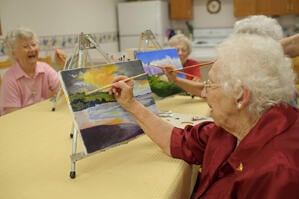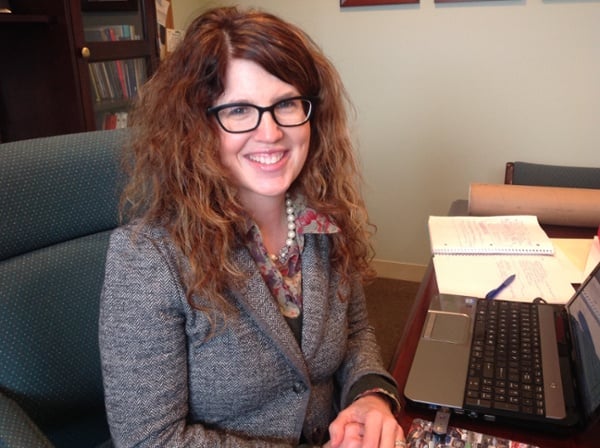 As you begin your search for the right assisted living community, you probably already know what your needs are and what to expect from your soon-to-be new home. If not, start assessing your current needs, whether it’s medication management, assistance with taking a shower or help tying your shoes. A caregiver may want to know many details, such as how a change in personal care needs over time would be handled by the staff or how the community can accommodate residents with dementia needs.
As you begin your search for the right assisted living community, you probably already know what your needs are and what to expect from your soon-to-be new home. If not, start assessing your current needs, whether it’s medication management, assistance with taking a shower or help tying your shoes. A caregiver may want to know many details, such as how a change in personal care needs over time would be handled by the staff or how the community can accommodate residents with dementia needs.
The Assisted Living Model
Assisted living communities provide a great option for seniors with changing care needs and allow residents to age in place. However, every community is unique and while they may offer the same general services, it is wise to explore the options in detail. Senior living advocates recommend making several visits to your chosen community at different times of day to ensure it actually fits into your needs and lifestyle. In addition, a caregiver who is accompanying a loved one on these visits can ask specific questions to help meet their goals.
Questions on the Environment
- Do I like the feel, location and appearance of this facility?
- Is the layout of the building easy to navigate?
- Was the greeting warm and welcoming upon entering the lobby?
- Do residents socialize with each other and appear happy?
- Will you be allowed to speak with residents about their satisfaction with the community?
- Are staff members appropriately dressed; professional yet, personable?
- Is the property secure and prevents residents from wandering off?
- Does the community have a process of assessing a resident’s need for services and how are these services implemented and managed?
- Are there additional services available if your mom or dad’s needs change?
- Is there a written plan of care and how frequently is it updated?
- Is there a written agreement that outlines standards and procedures, including personal care services, fees, refunds and transfers?
- Is there an appeals process for dissatisfied residents?
- How often are rental rates increased and are private programs available to help with cost of services to residents?
- Does the community provide assistance with medication, training and supervision of staff?
- Is staff available to provide 24 hour assistance?
- Are different types of apartments available?
- Do residents have privacy and are they able to close/lock their doors, if needed?
- Are barber shops/hair salons and convenience stores accessible?
- Are pets allowed and who is responsible for their care?
Questions on Policy, Costs and Agreements, Personal Care, Community Services and Amenities
The Not-for-Profit Difference
Above all, inquire about the ownership and operation of the community. Is it a not-for-profit community or is it part of a larger for-profit corporation? What is the mission, vision, and values of the community and are they posted anywhere? Better yet, can you observe these values at work when you walk in the door? Is it evident when you tour the community that the staff have genuine relationships with the residents, family members, and co-workers?
Many times people tend to overlook these important details, but at the end of the day, what really matters most? Caring relationships? Dedicated staff? Quality care for your loved one? Your peace of mind? Find a community that makes decisions based upon doing the right thing for their residents. To find out more about the Not-for-Profit difference in assisted living, visit http://umh.org/mision-vision-values/
Key Takeaways:
- Every assisted living community is unique (i.e., location, personal care services, layout, and security)
- Visit each potential community and ask relevant questions to ensure the facility meets your personal needs and expectations.
- A caregiver may want to know about the provision of memory care to accommodate dementia needs or how a change in personal care needs would be managed by staff.
- Caregivers visiting communities with their loved ones should ask guiding questions to find out as much information as possible before making a decision.
- First impressions on the feel, location, and appearance of the facility contribute to the final decision, but ultimately families should make a decision based on the integrity of the company ownership and the evidence of relationship-centered care.
Independent and Assisted Living
If you are interested in learning more about independent and assisted living communities please visit www.umh.org to learn more about our communties and why they would be right for you!






 As you begin your search for the right
As you begin your search for the right 